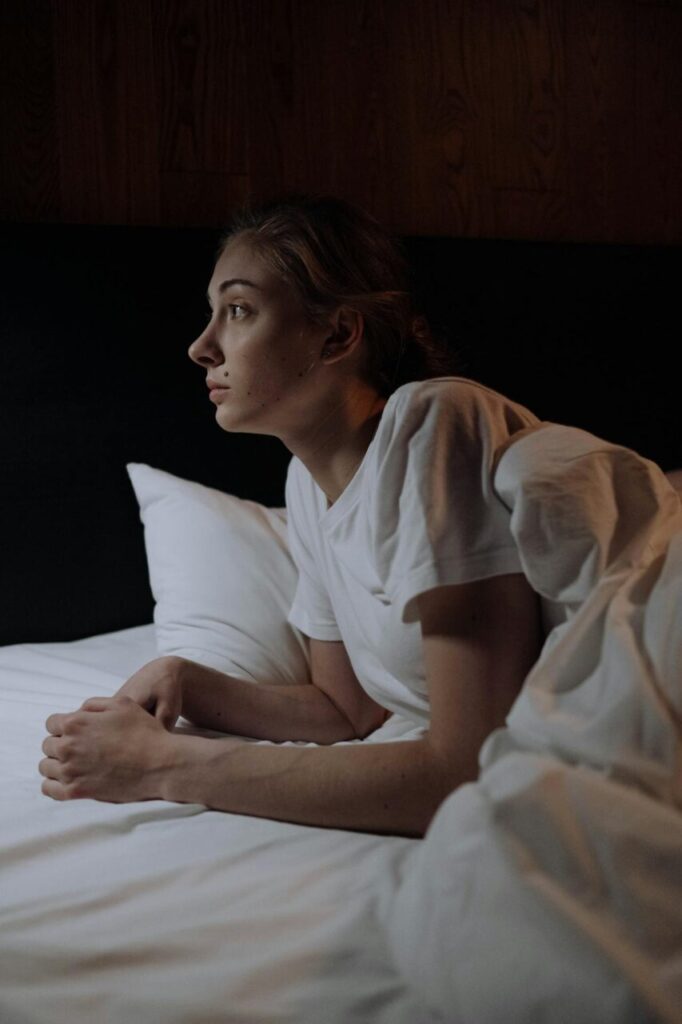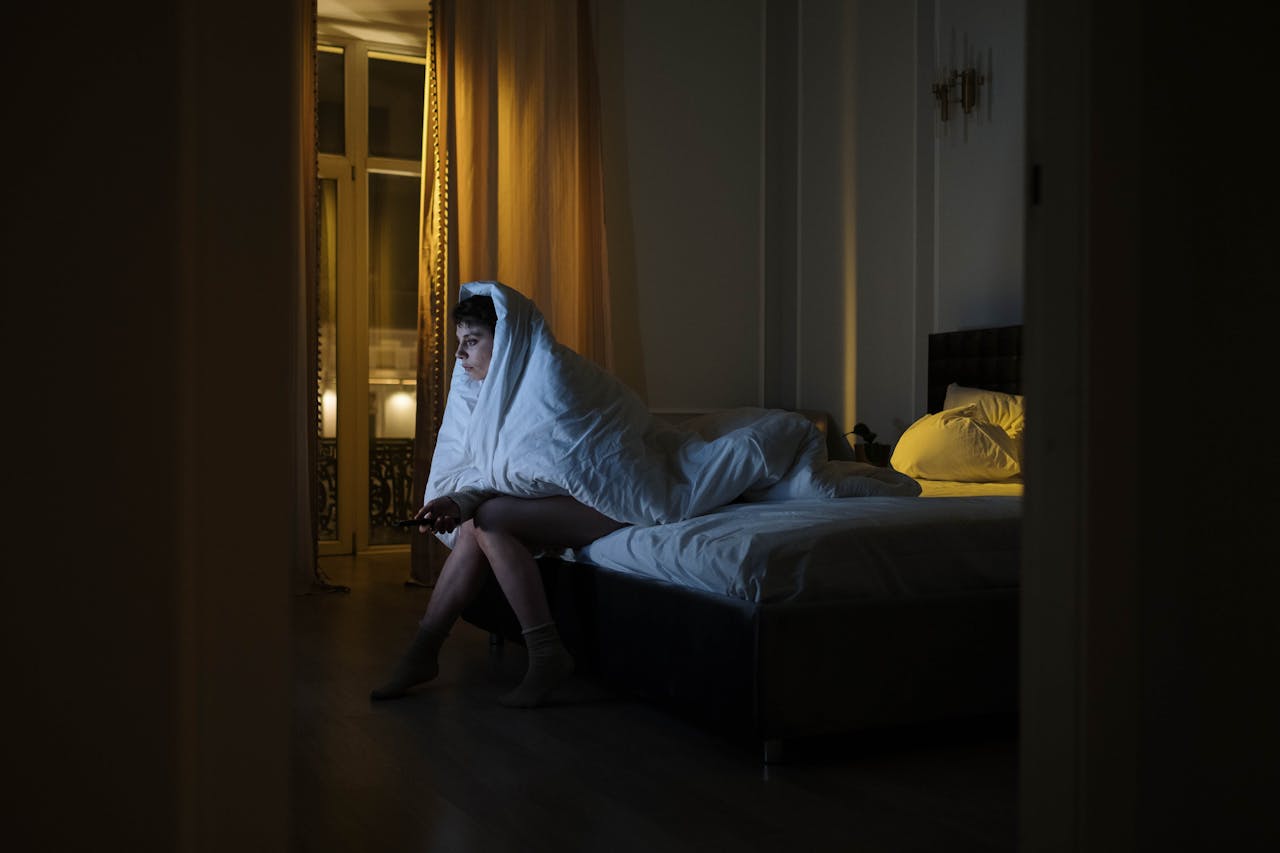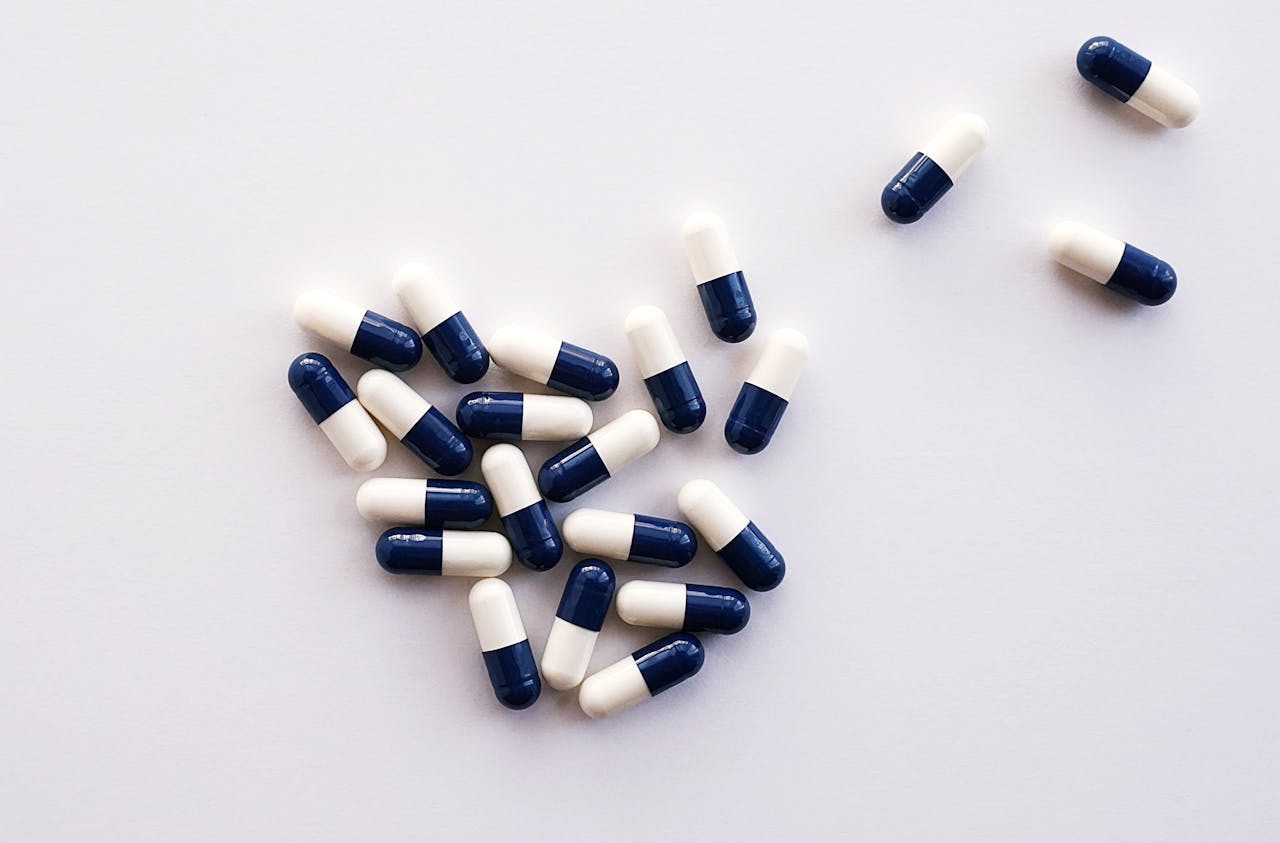
Join 130k subscribers and get the best of the week, straight to your inbox.
If you live with depression, mornings can feel like the hardest part of the day. You open your eyes and instead of feeling refreshed, there’s this heavy weight you can’t shake. And it’s not you being lazy, there’s something deeper causing it, and if you’ve been feeling that, you’re not imagining it.
Today, we’ll talk about why mornings are challenging if you have depression, to help you understand what’s going on. Because once you know what you’re dealing with, it gets easier to handle.
These reasons why is depression worse in the morning might even help you recognise a rhythm that finally explains those groggy wake-ups!
Why Mornings Are Challenging if You Have Depression: 9 Reasons You Might Not Have Thought About

Waking up with depression can feel like slamming straight into a brick wall. Your energy is flat, your mood is low, and there is zero drive to tackle anything. If you face this and wonder why do I feel hopeless in the morning, know that it has nothing to do with your laziness.
Here are a few reasons why mornings are challenging if you have depression:
Your Body Clock is Out Of Sync
Our circadian rhythm is the 24-hour master timer, which may drift off in depression. As a result, hormones that usually lift mood in the morning hit later, and you face a low patch right after waking. It makes your sleep and wake signals clash, and your energy feels flat while the rest of the world is revving up. Clinicians call this diurnal mood variation, and it’s why depression is worse in the morning for many people. Extra light exposure, random meal timing, and even your late-night scrolling can make your internal clock mis-timed, which eventually makes you feel low.
Broken or Shallow Sleep Leaves You Drained
Depression messes with your sleep—you might not sleep all night or crash for 12 hours, yet still feel wiped. When you have depression, deep sleep (the kind that restores muscles and minds) gets cut short, and the result is your body not getting enough shut-off time. You get non-refreshing rest and face mental fog after waking up. It’s a physiological shortfall in sleep quality that snowballs into low mood and poor focus before breakfast.
The Normal “Wake-Up” Cortisol Surge is Off

Healthy bodies release a quick burst of cortisol about 30–45 minutes after waking. This surge primes your blood sugar, helps manage stress, and sharpens alertness, besides a few other roles. However, depression can blunt this spike or overshoot it, which may create two different kinds of morning misery. Low levels of cortisol leave you groggy, while a high surge fuels irritability.
Psychomotor Slowing Means Every Action Feels Heavy
Depression can dial down the speed of both your movement and thought—medical teams call this psychomotor slowing. It is when your muscles feel stiff, your reaction times drag, and even simple tasks take twice the effort. This condition is linked to reduced activity in the basal ganglia, the region that helps launch and coordinate motion. Moreover, lower dopamine adds to that sluggish vibe, and such a physical drag explains why mornings are hard with depression: every small act demands extra fuel your body just doesn’t have at sunrise.
Loved this reflection?
Join The Now Edit — my weekly letter for women reimagining how they live, work, and show up in the world.
Soulful storytelling. Gentle Strategy. Real Tranformation.
By signing up, you’re agreeing with our terms and conditions.
First Thoughts are Often Negative Loops

The day starts with an instant replay of worries, regrets, and worst-case scenarios for many people battling depression. It is linked to your hyperactive default-mode network activity during groggy wake-up states. In simple terms, your brain’s background chatter kicks in before logic wakes up to counter it. Studies show that automatic negative thoughts spike cortisol and drop serotonin, which then drains motivation in minutes in the morning. Tackling thought patterns early answers the big query ‘why do I wake up feeling sad every day’ and gives your mind a concrete off-ramp out of the gloom.
No Spark of Pleasure to Pull You Up
Anhedonia means your reward system is on low battery, and you respond less to pleasant cues. As a result, your favorite breakfast foods or a sunny sky don’t trigger the usual “nice” signal. When nothing feels worth the effort, the morning weighs heavily on you, and you prefer staying in bed. Such a blunted feeling peaks in the first two waking hours for many mood-disorder patients, and they need to nudge that circuit awake if they want to start the day.
Some Meds Add Extra Morning Grogginess

Some antidepressants, anti-anxiety pills, and even certain pain meds list drowsiness as their prime side effect. So if you’re on meds, there’s a high chance you’ll experience these low phases and ask yourself, ‘why can’t I get out of bed when I’m depressed’. If you take your meds late at night, their peak sleepiness window can bleed into sunrise, which may leave your eyes gritty and limbs heavy. Notably, slow-release formulas linger longer, so the first hour out of bed may feel like you’re wading through glue. If you feel that medicines are making your mornings harder, ask the prescriber for a different dose time or a lower starting amount.
Little or No Morning Light Keeps Mood Low
Bright light in the first sixty minutes after waking tells your brain, “Day has begun—make serotonin, cut the melatonin.” But when curtains stay shut or sunrise comes late in winter, that signal stalls (it also explains why people feel depressed in extreme cold and rainy weather). Melatonin, the sleep hormone, lingers while serotonin stays low, so the mood remains flat and the body keeps thinking it should still be asleep. Studies link dim mornings to slower reaction times, heavier fatigue, and lower motivation. Short bursts of daylight early in the morning reset your body clock and make the first hour feel less like a fog.
Executive Dysfunction Makes Planning the Day Feel Impossible
Depression can snag your brain’s “project manager” hub, which does all the planning, starting, and shifting tasks. In the morning, your whole day’s duties pile up in one mental snapshot (meals, school drop-off, work politics) and your mind instantly blanks. Such mental gridlock burns precious energy before the feet even hit the floor and stretches the first hour into an exhausting crawl.
A good workaround for this reason is to remove as many decisions as possible. For example, you can lay out clothes at night and park essentials (keys, phone, water) in the same spot every evening. Each little pre-planned cue bypasses the stagnant planning loop and trains the brain to shift from idea to motion without the usual morning jam.
You Deserve A Brighter Start
Morning depression is real, and if waking up feels like running in sand, please know you are not weak or broken. Your brain chemistry, body clock, and even the meds that help you all play a part in that heavy dawn feeling. Blaming yourself only adds an extra load to carry.
That’s when you should offer yourself the same kindness you give everyone else. Open the curtains, drink water, move, and breathe after waking up instead of heading straight out of the room. These small acts tell your nervous system the day is safe to enter. It also helps to track what works for your mood and repeat it the next time you’re feeling down. However, some mornings will still be rough, yet none of them define your worth or limit what the rest of the day can be. Keep showing up and trust that brighter hours are near!
Suggested Reads:
FAQs
Why are mornings so hard for me emotionally?
Early-day lows are because of depression’s hit on the body clock. Circadian disturbances delay the normal rise in serotonin and core temperature, while the cortisol-awakening response arrives too weak or too strong. These changes leave stress hormones unbalanced and mood-lifting chemicals late to the party. Add poor sleep quality and a stiff nervous system, and emotions feel heavy before your feet touch the floor.
Is PTSD worse in the morning?
Post-traumatic stress disorder can flare early because the person’s sleep is often broken by nightmares and restless sleep cycles that fail to discharge fear memories. People with PTSD also show altered cortisol-awakening patterns, which means that the stress system wakes primed, not rested. Such mornings bring jitters, irritability, or numbness. Symptoms usually settle as the day progresses and external cues override the night’s threat signals.
Why do I feel bad in the morning and better in the afternoon?
Feeling lousy before noon yet lighter by mid-afternoon is classic diurnal mood variation. It’s because your body’s temperature is pushed, and alertness goes upward as the sun climbs. Also, neurotransmitters like dopamine and serotonin rise later than expected in people with depression or chronic stress. So by afternoon, their biological clock, meals, and movement synchronise, which reduces sadness and fog.
Zakia Lott
More Like This:








